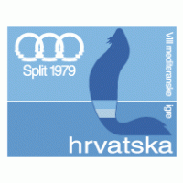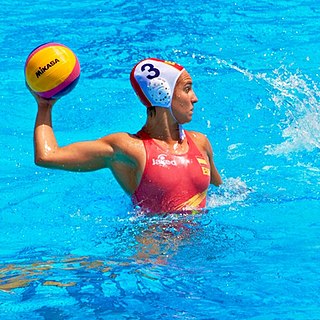Ten nations competed in water polo at the 1956 Summer Olympics in Melbourne.

Yugoslavia participated in the Eurovision Song Contest 27 times, debuting in 1961 and competing every year until its last appearance in 1992, with the exceptions of 1977–1980, and 1985. The Yugoslavian participant broadcaster in the contest was Jugoslavenska radiotelevizija (JRT) which selected its entrant with the national competition Jugovizija. Yugoslavia won the 1989 contest and hosted the 1990 contest.

Water polo has been part of the Summer Olympics program since the second games, in 1900. A women's water polo tournament was introduced for the 2000 Summer Olympics. Hungary has been the most successful country in men's tournament, while the United States is the only team to win multiple times at the women's tournament since its introduction. Italy was the first to win both the men's and women's water polo tournaments.

The 1979 Mediterranean Games, officially known as the VIII Mediterranean Games, and commonly known as Split 1979, were the 8th Mediterranean Games. The Games were held in Split, Yugoslavia, from 15 to 29 September 1979, where 2,408 athletes from 14 countries participated. There were a total of 192 medal events from 26 different sports.

Letalnica bratov Gorišek is one of the two largest ski flying hills in the world and the biggest of eight hills located at the Planica Nordic Centre in Planica, Slovenia.

The Serbia men's national water polo team represents Serbia in international men's water polo. It is considered to be one of the most successful men's water polo teams in the world, winning medals in all Olympic tournaments it has entered, including three golds, and being a multiple world and European champion.

The Greece men's national water polo team represents Greece in international men's water polo competitions and it is organized and run by the Hellenic Swimming Federation.

Andrija Prlainović is a Serbian professional water polo player widely regarded as one of the greatest players ever. He was a member of the Serbia men's national water polo teams that won bronze medals at the 2008 and 2012 Olympics and gold medals in 2016 and 2020. He also held the world title in 2009 and 2015 and the European title in 2006, 2012, 2014, 2016 and 2018. In 2011, he won the LEN Euroleague with VK Partizan and in 2013 with Red Star Belgrade, where he was one of the best scorers.
The Water Polo Tournament at the 1967 Mediterranean Games was held in Tunis, Tunisia. It was contested by men only.
Water polo was one of several sports at the 1963 Mediterranean Games. The fourth Mediterranean Games was held in Naples, Italy. Only men's teams participated in the water polo tournament.
Water polo was one of several sports at the 1959 Mediterranean Games. The third Mediterranean Games was held in Beirut, Lebanon. Only men's teams participated in the water polo tournament.
Margaret Ann Steffens is an American professional water polo player. She won the gold medal with the United States at the 2012, 2016 and 2020 Summer Olympics. At the 2020 Summer Olympics, Steffens set a new Olympic record for the most goals scored by an individual player in women's water polo at the Olympic Games.

The women's water polo tournament at the 2000 Summer Olympics in Sydney, Australia, was held from 16 to 23 September 2000, with six teams competing in the debut tournament. The games were held at the Ryde Aquatic Centre and the Sydney Olympic Aquatic Centre. It was the first time in history that women's water polo officially competed at the Summer Olympics.

Anna "Anni" Espar Llaquet is a Spanish water polo player who won the gold medal at the 2013 World Championships in Barcelona. She also won the silver medal at the 2012 and 2020 Summer Olympics.
The basketball tournament at the 1979 Mediterranean Games was held in Split, Croatia, Yugoslavia.
Clara Espar Llaquet is a Spanish water polo player who won the silver medal at the 2017 World Championships in Budapest and at the 2019 World Championships in Gwangju.
Events in the year 2022 in Slovenia.
Field hockey was one of several sports at the 1963 Mediterranean Games. The 4th Mediterranean Games was held in Naples, Italy. Only men's teams participated in the field hockey tournament.
Field hockey was one of several sports at the 1979 Mediterranean Games. The 4th Mediterranean Games was held in Split, Yugoslavia and field hockey games played in Kaštela. Only men's teams participated in the field hockey tournament.










